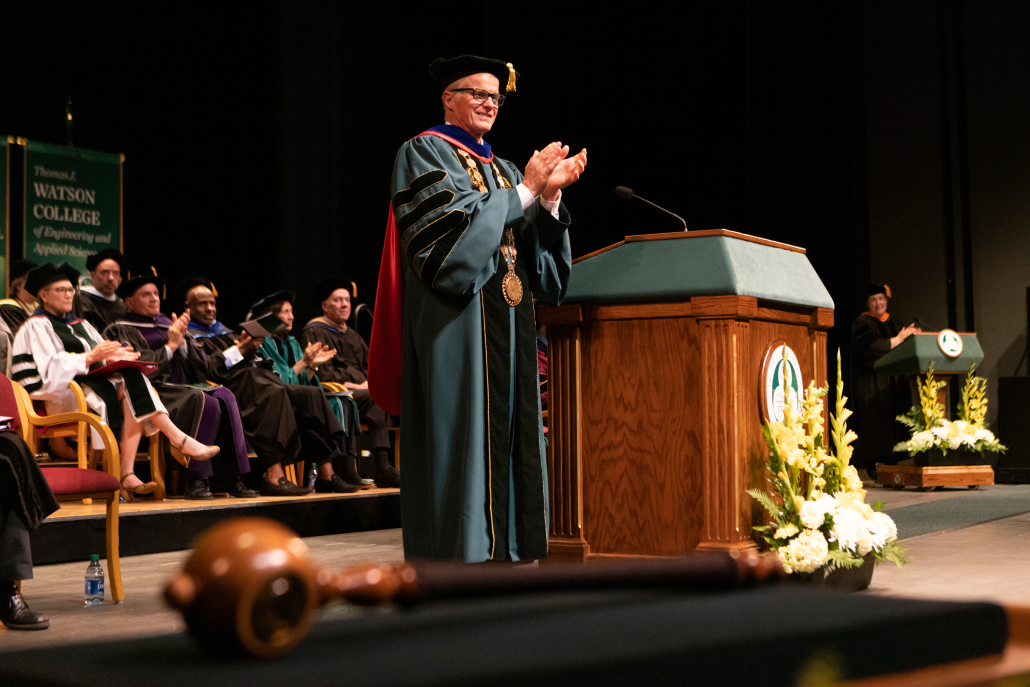The contemporary political landscape demands strong leadership from individuals who can not only navigate a complex world but also possess the knowledge and tools to enact meaningful change. If this is the future you envision, consider an advanced degree in political science at Binghamton University (State University of New York), set in relatively affordable upstate New York.
Its Political Science Department, ranked 19th in the world, offers programmes that seek to equip scholars and professionals with the tools to assess and contribute solutions to the pressing issues of our time. Here, you can pursue both Master of Arts (MA) and doctoral programmes that empower students to make a difference alongside realising their individual goals.
Binghamton’s Political Science programme takes a two-pronged approach, recognising the unique nature of the field and the ever-growing importance of quantitative analysis in social sciences. Students are encouraged to develop a niche within the broad discipline while honing their skills in data-driven research. This focus on quantitative methods prepares graduates to be leaders in a world increasingly reliant on evidence-based solutions.
The PhD programme caters specifically to those seeking to contribute new knowledge and advance their academic and professional trajectory through research and teaching. Binghamton’s rigorous curriculum equips students with the expertise to conduct quantitative research on areas that would make a difference in the world, like human rights, voting rights, and national security.

Source: Binghamton University
Empowering research and shaping careers
Graduates like Roya Izadi, now a faculty member at the University of Rhode Island, exemplify the programme’s success. Her research interests, which span the political economy of security and the implications of fiscal policies for civil-military relations as well as the broader role of security forces in societies, were nurtured at Binghamton.
“My research interests were fully developed early on at Binghamton, thanks to a wonderful class I took with Professor Katja B. Kleinberg on International Political Economy,” she says. “So, my class paper became my comprehensive exam paper, a prospectus, and finally, my dissertation. The paper was published in a reputable journal in my last year as a PhD candidate and had a crucial impact on my job application to URI.”
Izadi’s experience as a Teaching Assistant (TA) for professors Katja B. Kleinberg and Benjamin Fordham sharpened her quantitative skills, which she now actively integrates into her own teaching. In her courses, she dedicates significant class time to guiding students in hypothesis testing, a skill directly acquired from her experiences as a learner.
Binghamton’s Political Science Department is at the forefront of data-driven research, pioneering tools like CIRIGHTS, the world’s largest human rights dataset. This comprehensive database allows policymakers, teachers, and scholars in the disciplines of political science, sociology, and economics to not only compare the human rights practices of different countries to develop and test theories of why states violate human rights but also to evaluate the human rights consequences of policy interventions, and to determine whether government protection of various rights is improving or declining.
What’s more, the department’s contributions extend to the Magleby-Mosesson Redistricting Algorithm, a crucial tool for ensuring fair and representative elections that has been cited in federal court proceedings all the way up to the US Supreme Court. Initiatives like these demonstrate Binghamton’s commitment to producing research with a tangible impact.
For Izadi, the ability to collect original data proved invaluable. As a Research Assistant for Professor David H. Clark, she honed her skills in compiling cross-national data on state repression. “I was able to utilise the experience in my post-doc where I supervised about 12 undergraduate students at Cornell University to collect a dataset on police violence worldwide,” she says.

Source: Binghamton University
A legacy of mentorship and success
Binghamton has a strong record of working with all students regardless of their background. This is possible thanks to its close-knit environment. Small class sizes foster meaningful interactions between students and faculty, often leading to collaborative research projects. These have resulted in numerous co-authored conference papers and articles, opening doors for students in academia, research institutes, government, and private industry. Just ask Matthew Walz, a PhD graduate currently working for General Mills as a Decision Sciences Manager.
“Without my PhD from Binghamton, I can confidently say I would not be qualified for my current role or be able to perform the duties I have,” Walz says. “At BU, I learned the skills needed to do forecasting and even taught an election forecasting class to undergraduates. Binghamton also taught me how to perform research properly.”
In fact, his background in econometrics equips him to tackle complex business questions. Walz believes while many data scientists possess some knowledge of econometrics, theirs often lacks the depth instilled at Binghamton. This rigorous foundation, emphasising underlying assumptions and the ever-present possibility of error, is what gives him an edge and leads to more reliable insights.
Follow Binghamton University on Facebook, Instagram, YouTube, and TikTok











